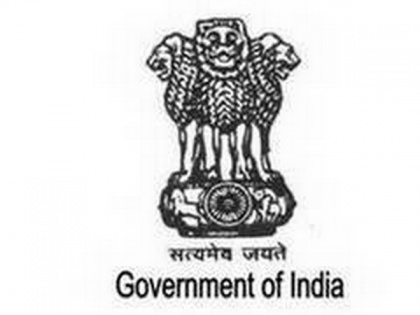Cabinet approves ratification of 7 Persistent Organic Pollutants listed under Stockholm Convention
By ANI | Published: October 7, 2020 09:45 PM2020-10-07T21:45:01+5:302020-10-07T21:55:19+5:30
The Union Cabinet on Wednesday approved the ratification of seven chemicals listed under the Stockholm Convention on Persistent Organic Pollutants (POPs).

Cabinet approves ratification of 7 Persistent Organic Pollutants listed under Stockholm Convention
The Union Cabinet on Wednesday approved the ratification of seven chemicals listed under the Stockholm Convention on Persistent Orgc Pollutants (POPs).
The Cabinet further delegated its powers to ratify chemicals under the Stockholm Convention to Union Ministers of External Affairs (MEA) and Environment, Forest and Climate Change (MEFCC) in respect of POPs already regulated under the domestic regulations to streamline the procedure. .
An official release said that the Stockholm Convention is a global treaty to protect human health and environment from POPs, which are identified chemical substances that persist in the environment, bio-accumulate in living orgsms, adversely affect human health and environment and have the property of long-range environmental transport (LRET).
Exposure to POPs can lead to cancer, damage to central and peripheral nervous systems, diseases of the immune system, reproductive disorders and interference with normal infant and child development.
POPs are listed in various annexes to the Stockholm Convention after thorough scientific research, deliberations and negotiations among member countries.
India had ratified the Stockholm Convention on January 13, 2006 as per Article 25(4), which enabled it to keep itself in a default "opt-out" position such that amendments in various annexes of the convention cannot be enforced on it unless an instrument of ratification or accession is explicitly deposited with UN depositary.
Considering its commitment towards providing safe environment and addressing human health risks, the Ministry of Environment, Forest and Climate Change (MoEFCC) had notified the 'Regulation of Persistent Orgc Pollutants Rules, on March 5, 2018 under the provisions of Environment (Protection) Act, 1986, the release said.
It said the regulation prohibited the manufacture, trade, use, import and export seven chemicals - chlordecone, hexabromobiphenyl, hexabromodiphenyl ether and heptabromodiphenylether (Commercial octa-BDE), tetrabromodiphenyl ether and pentabromodiphenyl ether (commercial penta-BDE), pentachlorobenzene, hexabromocyclododecane, and Hexachlorobutadiene, which were already listed as POPs under Stockholm Convention.
"The Cabinet's approval for ratification of POPs demonstrates India's commitment to meet its international obligations with regard to the protection of the environment and human health," the release said.
The ratification process would enable India to access Global Environment Facility (GEF) financial resources in updating its National Implementation Plan (NIP).
( With inputs from ANI )
Disclaimer: This post has been auto-published from an agency feed without any modifications to the text and has not been reviewed by an editor
Open in app